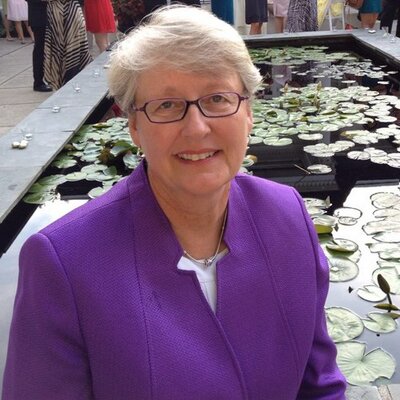Growing Up to Create Change
Dr. Sharon Shields has never been content with standing on the sidelines. Growing up in the small town of Paducah, Kentucky, she learned early on that if she wanted change, she would have to create it herself. At just nine years old, Shields took it upon herself to introduce softball for girls in her elementary school, organizing equipment, setting up games, and challenging the stereotypes of what girls could do. Her grandmother, a woman born in 1896 and a lifelong advocate for women’s rights, inspired Shields with her tenacity. Together, they crafted makeshift bases out of pillowcases and sand, a perfect representation of Shields’ approach to life: when the proper tools aren’t available, make your own.
“I was nine years old,” Shields recalls. “And I just wanted to play ball. My grandmother always asked, ‘Well, what are you going to do about it?’ And that became my mantra. If it wasn’t there, I figured out how to make it happen.”
Advocating for Equality Before Title IX
By high school, Shields was pushing for more opportunities for women in sports, successfully advocating for a girls’ track team at her school and even helping to develop a statewide competition for female athletes. She wasn’t simply participating; she was leading a movement, one that predated the official enactment of Title IX by years. Title IX—the 1972 law mandating gender equality in education—came as no surprise to Shields. It was, in many ways, the embodiment of her own journey: challenging gender norms, pushing institutions to change, and never taking “no” for an answer.
“I wanted a track team, and I thought, ‘Why not?'” Shields says. “There were enough of us who wanted to run, and we deserved the same opportunities as the boys. I think that’s what really set the tone for me—to always challenge the norm.”
In 1971, Shields found herself at the University of Louisville, an era when opportunities for female athletes were scarce. While many women were relegated to secondary roles, Shields joined the men’s track team—the only woman among her teammates. She competed in women’s events but trained and traveled with the men, setting a precedent not only for herself but for generations to follow. This experience taught her to navigate male-dominated spaces, to stand up for herself, and to find allies among those who might not initially understand her vision.
Finding Home at Peabody College
Shields’ journey eventually led her to Vanderbilt University’s Peabody College, a place she described as “finding home.” She joined the faculty in 1976 and immediately began weaving together her love for education, community health, and social justice. She co-founded the Kim Dayani Human Performance Center at Vanderbilt Medical Center, where she focused on exercise physiology, health promotion, and disease prevention—particularly within underserved communities. Shields’ work wasn’t confined to academia; she took her research out of the classroom and into the community, working on projects like the Nashville Mobile Market, an initiative aimed at bringing fresh produce to food desert areas in partnership with Vanderbilt and the Nashville community.
Breaking Barriers in Sports and Community Health
Throughout her career, Shields continually broke barriers. She served as the President of the National Association for Girls and Women in Sport and held positions on the Governor’s Council on Physical Fitness and Health. She also became a member of the President’s Council on Physical Activity, Nutrition, and Health Science Board. Her passion for community health took her to places like the Navajo reservation in New Mexico, where she worked with a colleague, Elizabeth Gilbert, at the University of New Mexico-Gallup, to reduce diabetes and alcohol addiction among Indigenous populations, always focusing on empowering local communities to create lasting change.
“I remember the first time I went to the Navajo reservation,” Shields reminisces. “It wasn’t about coming in with solutions. It was about listening, understanding, and working alongside the community. We were there to support, not to impose.”
A Champion of Service-Learning
In the early 2000s, Shields’ advocacy and love for education dovetailed into a role as Assistant Provost for Academic Service-Learning. She pioneered university-community engagement initiatives that encouraged students to take what they learned in the classroom and apply it to real-world problems, tackling everything from health disparities to social justice issues. Shields firmly believed that education wasn’t just about personal advancement; it was a “debt due to future generations,” a value she embraced from Peabody College’s mission.
“Education is not just about getting a degree,” Shields often says. “It’s about what you do with that education—how you give back, how you serve. That’s the true measure of success.”
The Algernon Sydney Sullivan Award and Peabody College
While Shields was nominated for the Algernon Sydney Sullivan Award during her time at the University of Louisville, she did not receive it. However, her connection to the Sullivan Foundation became much deeper later in her career. Years after joining the faculty at Peabody College, Shields played a crucial role in reintroducing the Sullivan Award to the college after a long hiatus. The award, which had originally been given at Peabody but had lapsed following the merger with Vanderbilt, was rediscovered when Shields found a plaque honoring past recipients. Recognizing the importance of the Sullivan Award in promoting servant leadership, Shields worked with the Peabody Dean’s office to reestablish the award at Peabody College. Today, she serves as the liaison between Peabody and the Sullivan Foundation, ensuring that the award continues to honor students who embody the values of integrity and service.
The history between the Sullivan Foundation and Peabody College is unique and rich, stretching back decades. The Sullivan Memorial Collection at Vanderbilt University is a testament to George Sullivan’s dedication to fostering servant leadership through education and the arts. This collection, which features works of art donated by the Sullivan family, has been used as an educational resource for students across various disciplines. The College, founded with a generous gift from George Peabody—a man whose dedication to philanthropy spanned both sides of the Atlantic—embodied a similar spirit of service. The collaboration between the Sullivan Foundation and Peabody College was a natural fit, each sharing a commitment to cultivating service-oriented leaders.
Creating Inclusive Educational Environments
For Shields, her role in reintroducing the Sullivan Award was not the culmination of her journey, but simply another milestone. She has continued her work at Vanderbilt as Senior Associate Dean for Community and Special Projects, where she influences the next generation of educators and leaders. She served as Interim Director of the Susan Gray School, an inclusive early childhood education program that integrates children with intellectual challenges alongside typically developing peers. Shields’ dedication to fostering inclusive education environments underscores her belief that community begins in the classroom, that equity starts with our youngest citizens.
“The Susan Gray School is a place where every child belongs,” Shields explains. “It’s about breaking down barriers before they even have a chance to form. Children learn acceptance naturally when they grow up together.”
Impacting the Community Beyond the Classroom
Her passion for public service and health education hasn’t waned. Shields recently served as the educational director for “Fizzy’s Lunch Lab,” a PBS Emmy-nominated web series aimed at teaching children about nutrition. It’s one more example of how she uses every platform available to promote well-being, justice, and lifelong learning.
Shields’ story is one of resilience and purpose. Her career has been a bridge between past and future—between the intergenerational wisdom of her grandmother and the hopes and aspirations of her students. She’s lived the values of the Algernon Sydney Sullivan Foundation, proving that leadership is about more than holding a title or receiving recognition; it’s about creating opportunities for others, dismantling barriers, and always, always stepping onto the field when others say you shouldn’t.
A Debt to Future Generations
Peabody College’s motto, “Education is a debt due to future generations,” is a mantra that Shields has not only lived by but has exemplified at every turn. Her story—beginning in a small town in Kentucky and extending to national initiatives and academic advancements—is a testament to the impact one person can have when they refuse to sit on the sidelines, when they pick up a glove, craft a base from a pillowcase, and decide that if the world doesn’t have a game for them, they’ll start one of their own.
“I think back to those early days, and I realize that it wasn’t just about me,” Shields reflects. “It was about setting a precedent. It was about every young girl who came after me, knowing she could pick up that glove or run that race without hesitation. If I opened even one door, then it was all worth it.”
Her influence extends far beyond the walls of Vanderbilt. Shields’ work with initiatives like the Nashville Mobile Market and her involvement in national health boards demonstrate her dedication to service that impacts real lives. She has not only been a champion for physical education and health promotion but also for equity and justice in all its forms. Shields has become a symbol of what it means to be a change agent, and her legacy is not just the awards and accolades but the lives she has touched, the systems she has challenged, and the paths she has paved for future generations.
Carrying the Torch Forward
As Peabody College and the Sullivan Foundation celebrate their connections and shared mission of servant leadership, it’s impossible to overlook Shields’ contribution to that mission. On April 11, 2025, Peabody College will host the Sullivan Showcase and Centennial Celebration, marking 100 years of the Sullivan Foundation’s impact. The event will include student showcases, keynote speakers, and a gala to honor past Sullivan Award recipients. Shields has been instrumental in planning this celebration, ensuring that the values of service and integrity are at the forefront.
“We owe it to the next generation to not just tell them what’s possible, but to show them,” Shields says, “To break the rules that need breaking, to question the systems that need questioning, to always be ready to pick up the glove and play, and to reenvision what is possible.”
Back to all News items.


